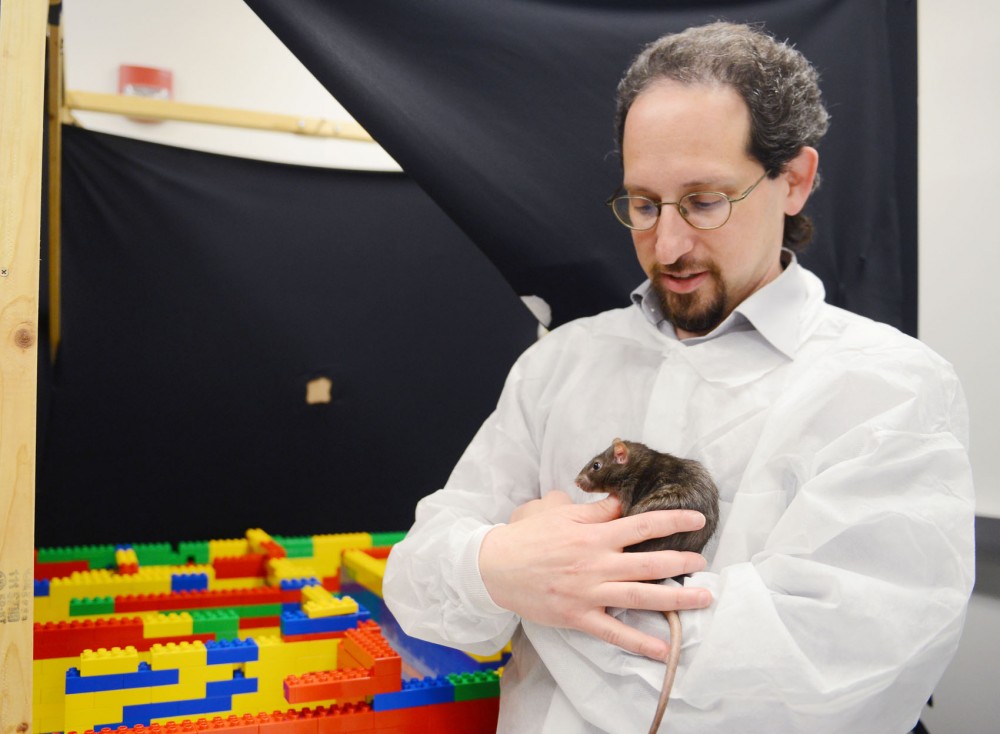Humans aren’t the only ones who can feel regret.
A study by University of Minnesota researchers, published earlier this month, proved that when rats skipped on appealing food choices, they regretted it. Building on the findings, researchers in the neuroscience and psychology departments are now working to translate the study’s results to humans.
“If we want to understand how we think, we have to understand how other animals think,” said David Redish, a neuroscience professor.
Redish is leading the study, which recently sparked national media attention, and is now working to use the breakthrough in rats’ mental processes to provide a better understanding of humans’ decision-making processes, specifically those who have psychiatric disorders, like substance abuse and addiction.
In the experiment, researchers presented rats, each with individual flavor preferences, with a choice of four “restaurants” with different pellet flavors — chocolate, cherry, banana or unflavored. Wait times for the rats to have access to the pellets ranged from one to 45 seconds.
When the rats passed up a “restaurant” because they didn’t want to wait any longer for a pellet — only to find a worse flavor or a longer waiting time at the next stop — their behavior and neural coding exhibited regret, said neuroscience graduate student Adam Steiner, who worked on the recently published research.
The distinction between regret and disappointment is a key factor in the study, Redish said, since disappointment stems from recognizing things aren’t good, and regret involves recognizing a mistake. Regret, he said, affects future decision-making.
“Regret means you messed up,” he said. “Regret is thinking, ‘If only I’d done something.’”
Redish said he wants to test how people with psychiatric disorders, like substance addiction, make decisions and calculate regret.
“There’s a lot of ways you can make the wrong decision so you can continue taking drugs,” he said. “I think that many psychiatric problems are fundamentally decision-making problems.”
The previous rat study was a step toward understanding how malfunctions in the orbitofrontal cortex, the brain structure involved in decision-making, may affect human behavior, Steiner said.
“It’s excellent work, really impressive and exciting,” said psychology associate professor Jonathan Gewirtz. “There’s a temptation of researchers to give human concepts in animals without proper justification, but they did a good job in justifying the parallel between regret in a person and the brief state of regret in a rat.”
In the expanded human study, researchers hope to illuminate neurological parallels between rats and humans, said Samantha Abram, a psychology graduate student working on the project.
“We could use the task to test things like impulsivity and risk-taking and how those relate to regret,” she said.
The recently published study confirms Steiner’s observations from a 2012 experiment in which rats appeared regretful after making a bad decision.
“The little guy had come from a reward that he liked more but didn’t stay for,” he said of the rodents in the previous study, “so he turns in a little circle, looks back, knows he missed out, and keeps going.”











